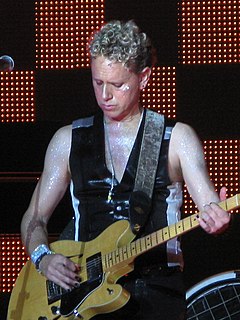A Quote by William Golding
Don't get me wrong. I have nothing against this as a method, but it is not what English writers do.
Related Quotes
I was born with the wrong sign
In the wrong house
With the wrong ascendancy
I took the wrong road
That led to
The wrong tendencies
I was in the wrong place
At the wrong time
For the wrong reason
And the wrong rhyme
On the wrong day
Of the wrong week
Used the wrong method
With the wrong technique
Wrong
Wrong.
Read a lot. But read as a writer, to see how other writers are doing it. And make your knowledge of literature in English as deep and broad as you can. In workshops, writers are often told to read what is being written now, but if that is all you read, you are limiting yourself. You need to get a good overall sense of English literary history, so you can write out of that knowledge.
I can actually get involved in getting stories off the ground that no one would ask me to be in because I'm the wrong age, the wrong sex, the wrong nationality, or whatever. I've found it quite exhilarating to have that freedom to tell the stories that aren't just about middle-aged white English guys.
If we can get that realistic feminine morality working for us, if we can trust ourselves and so let women think and feel that an unwanted child or an oversize family is wrong -- not ethically wrong, not against the rules, but morally wrong, all wrong, wrong like a thalidomide birth, wrong like taking a wrong step that will break your neck -- if we can get feminine and human morality out from under the yoke of a dead ethic, then maybe we'll begin to get somewhere on the road that leads to survival.
Science is a way of getting knowledge. It's a method. It's a method that really relies on making mistakes. We propose ideas, they are usually wrong, and we test them against the data. Scientists do this in a formal way. It's a way that everyone can go through life; that's how we should be teaching science from a very young age.
Shakespearean words, foreign words, slang and dialect and made-up phrases from kids on the street corner: English has room for them all. And writers - not just literary writers, but popular writers as well - breathe air into English and keep it lively by making it their own, not by adhering to some style manual that gets handed out to college Freshmen in a composition class.
I call up Amazon. It seems to me they do a major thing wrong, right. I mean, they protect me against the loss of a $50 liability I have of something on my credit card, but they do nothing to protect me against somebody who is watching to see what books I'm interested in, what new perversions I've developed.
I was terrible in English. I couldn't stand the subject. It seemed to me ridiculous to worry about whether you spelled something wrong or not, because English spelling is just a human convention--it has nothing to do with anything real, anything from nature. Any word can be spelled just as well a different way.






































